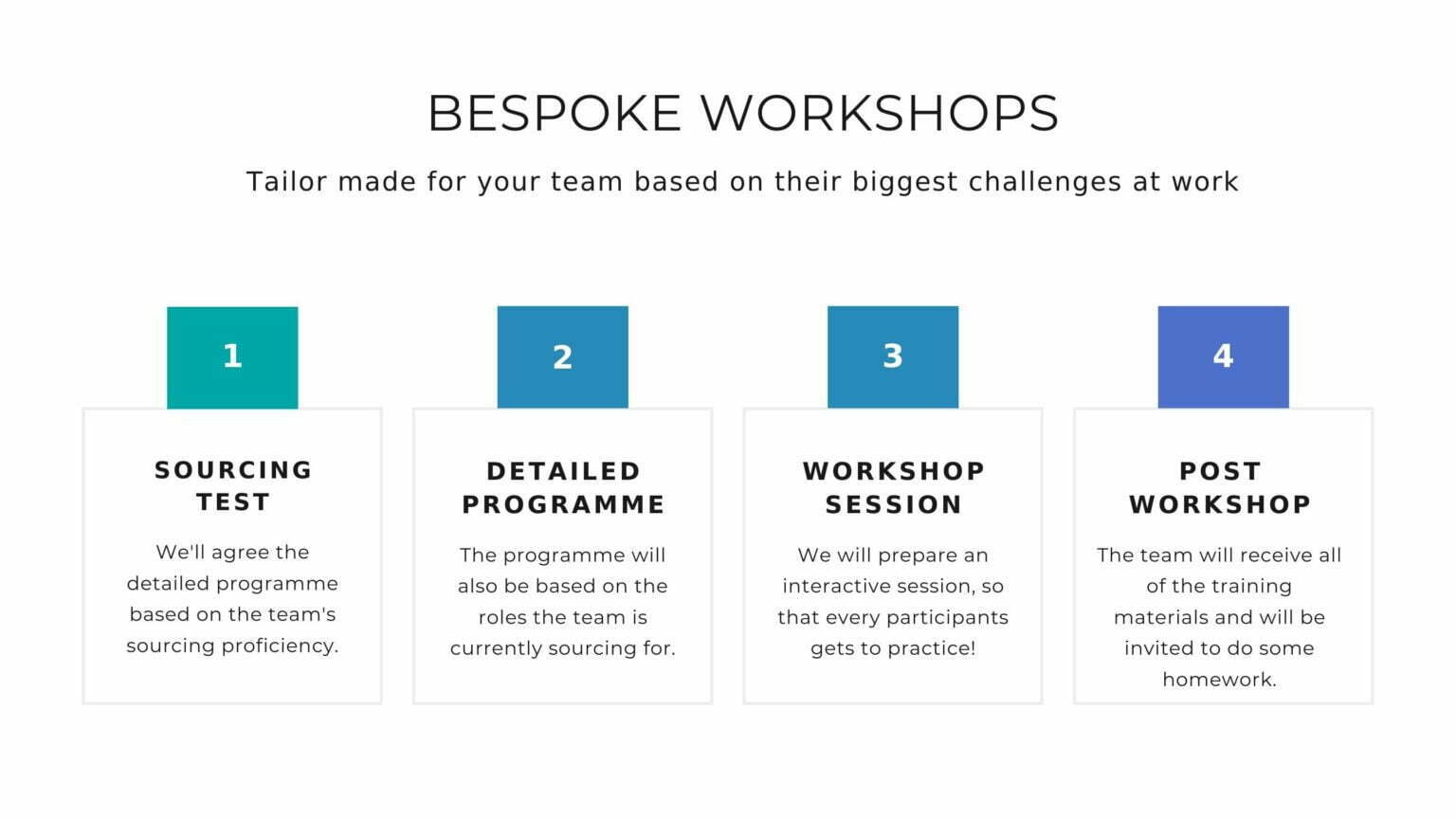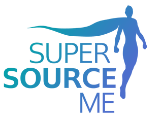
If you’re looking for practical workshops that your recruiters will leave with not only new knowledge, but skills they can use the very next day – you’ve come to the right place 🙂
We’ve trained multiple teams and have found that the right combination of theory, discussions and – most of all – practical exercised ensure the best results! All of the exercises are based on your real life sourcing cases, which means the team isn’t wasting time. They’re solving their most burning challenges as they are learning new things.
Our sourcing workshops focus on:
Sourcing process
A well defined sourcing process is the very foundation of success. And since it differs from a traditional recruitment process (e.g. when analysing the role with the hiring manager), we like to cover the main points in the session.
Search techniques
A recruiter’s ability to find potential candidates is an obious predictor of success in a sourcing role. During the workshop, the participants practice search techniques by looking for candidates for their open roles.
Communication
Engagement has become a challenge as sourcing quickly becomes one of the go to methods for talent acquisition. We’ll focused on personalising messages at scale to improve your response rates.
In this part we answer these questions:
- How can you prepare for a briefing with a Hiring Manager?
- Where can you find information about the market and how can you run a test search?
- How do you choose the right keywords?
- How do you choose the right sourcing platforms for each project?
- When should you invest in new sourcing platforms and when is it best to stick to what you know?
- Should LinkedIn be your only source of candidates?
In this part we answer these questions:
- What is a search engine and what is a browser?
- How do you search with Boolean Search and X-Ray Search?
- How do you source on LinkedIn, GitHub, StackOverflow, Meetup and other platforms?
- Why does your colleague on the right see different results while your collueague on the left doesn’t see any results at all?
- How to find contact details for potential candidates?
- What is cross reference search, iterative search and natural language search and when should you use them?
In this part we answer these questions:
- What really motivates people to change jobs?
- How can you address a potential candidate’s invididual motiation in your approach message?
- Should you personalise all of your approach messages?
- How do you adjust your communication to different channels?
- What is a communication plan and how can you build one for your roles?

Interested? Great! Download our programme to talk it over with your team or book time in our calendars to learn more.




